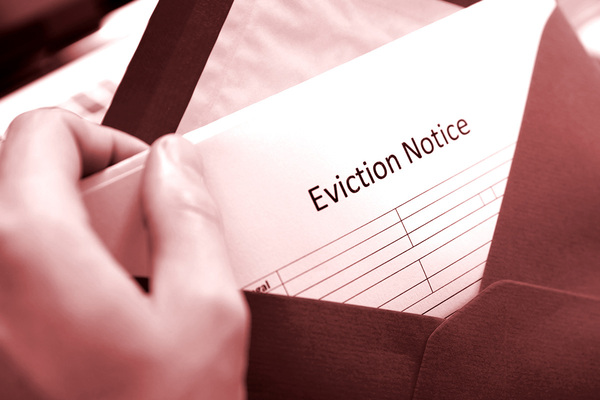You are viewing 1 of your 1 free articles
Eviction notice periods reduced to four months from June
Minimum eviction notice periods will be cut from six months to four from June for most renters in England, the government has announced.
The Ministry of Housing, Communities and Local Government said that longer notice periods for tenants facing eviction during the pandemic will remain in place until at least October, although the term will be reduced to four months from next month.
Before the coronavirus crisis hit the UK last March, the standard minimum notice period in England was two months.
Ministers said the reduction in notice periods is in line with the nation “progressing cautiously” through the roadmap out of lockdown.
The government said that subject to public health advice, notice periods will return to the pre-pandemic levels from 1 October.
Housing associations welcomed the extended protections but called for longer notice periods to be in place beyond October.
Currently, notice periods will be shorter for the most serious cases including anti-social behaviour, domestic abuse in the social sector and more than four months’ rent arrears.
Since September 2020 after a blanket ban on evictions came to an end, landlords in England have been required to give most renters at least six months’ notice if they intend to evict them.
A ban on bailiff-enforced evictions is due to lift at the end of this month, having been extended from the initial March deadline.
Housing minister Christopher Pincher said: “From the beginning of the pandemic, we have taken unprecedented action to protect renters and help keep them in their homes.
“As COVID restrictions are eased in line with the roadmap out of lockdown, we will ensure tenants continue to be supported with longer notice periods, while also balancing the need for landlords to access justice.
“Crucial financial support also remains in place including the furlough scheme and uplift to Universal Credit.”
In yesterday’s Queen’s Speech it was announced that government will publish a white paper in the autumn, with further protections for renters including proposals to abolish so-called ‘no-fault’ evictions.
Former prime minister Theresa May first promised to scrap Section 21 evictions two years ago in April 2019.
A recent survey commissioned by Generation Rent found that nearly one in 12 private renters have been served with a Section 21 notice since the start of the pandemic.
Catherine Ryder, director of policy and research at the National Housing Federation, said: “It is positive that the government has extended longer notice periods beyond the end of May, which is something we have been calling for. We welcome the protection this will offer renters over the coming months.
“While lockdown is easing across the country, we know many tenants will feel the impact of the coronavirus crisis long into the future.
“That is why we are urging the government to consider extending longer notice periods beyond October rather than returning to the much shorter pre-pandemic notice periods.”
David Renard, housing spokesperson for the Local Government Association, said: “We recognise that the ban on eviction enforcement, which provided vital reassurance to renters during the pandemic, cannot continue indefinitely.
“However, councils remain concerned over the potential rise in homelessness households may face, and the pressure this will add to already over-stretched homelessness services.
“It is vital there is a plan in place to support and protect households to stay in their homes, in as many cases as possible.”
Sign up for our tenancy management newsletter
Already have an account? Click here to manage your newsletters












